Scholar Spotlight - Roberta Hannah
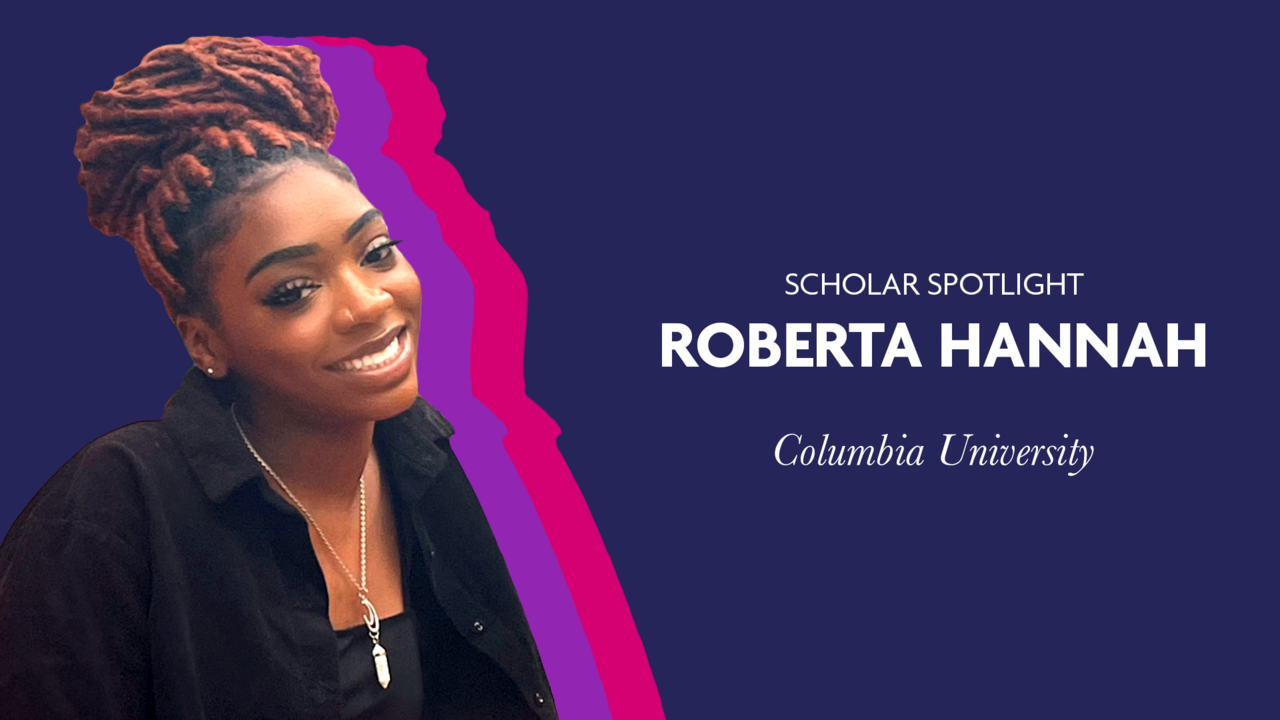
Discover more Scholar Spotlights.
Roberta Hannah, a Columbia University Laidlaw Scholar and Arts & Humanities Subject Co-Lead, on researching the lives of Black LGBTQ+ elders, and exploring the overlooked subtleties that shape our lives.
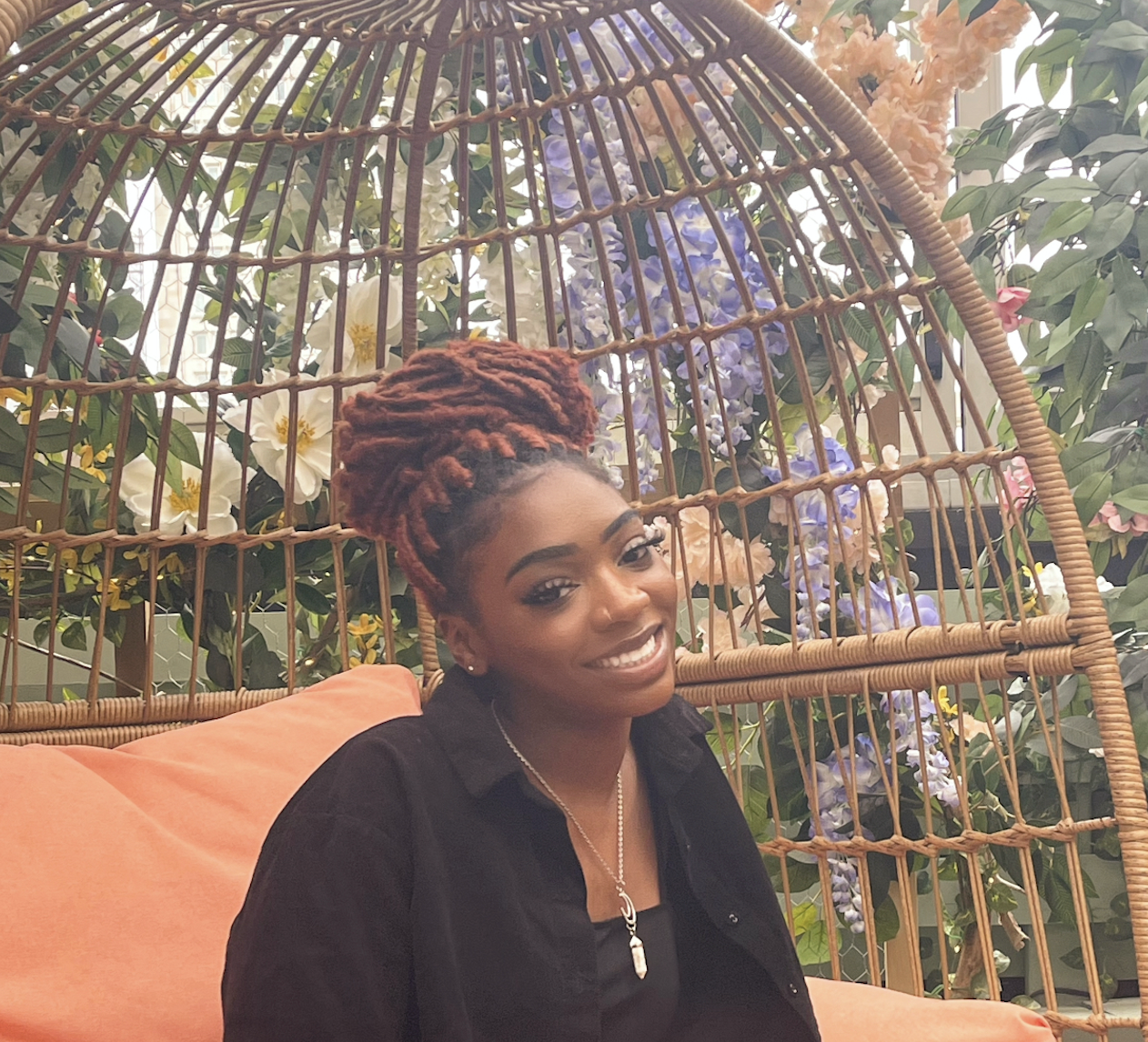
Research title: The Paradoxical Reverence and Neglect of Black LGBTQ+ Elders
In many communities affected by colonialism and systemic oppression, elders behave as the gateway between their people's past, present, and future. They pass down traditions, wisdom, languages, and so many integral pieces that make that community what it is.
The Black LGBTQ+ community stands at the intersection of racism and homophobia. This identity is not just being Black or queer, but existing as both simultaneously and dealing with the barriers that accompany being a Black person "in the life." They were forced to birth a rich underground culture that one may only gain access to if they hold said identity.
Black LGBTQ+ elders, specifically those born before 1955, birthed their culture in conjunction with the Civil Rights Movement and the Gay Liberation Movement in the 1960s and 1970s. The experiences and wisdom they gained in their lives are still being explored today because people are becoming more conscious of what they can acquire by knowing the ins and outs of everything that the elders have learned.
Issues arise because of the difference in the value placed on the elders' roles and their current realities. They face problems financially, socially, medically, and emotionally, which are often overlooked because of the systemic oppression they experience despite their significance. Understanding what these elders need allows for a closer examination of the ways modern societies fall short and neglect those that push the world forward. When a person holds multiple levels of marginalization, they must navigate every obstacle society places in their way. Learning from elders is not just learning about their youth, but learning about their present to see where we as a people must work to give them the lives that they deserve as our gateway to a new future.
Where did your passion for this research originate?
Dr. Mignon Moore, a sociology researcher at Barnard College and my research advisor, began this project. She is currently writing a book about what the lives of Black LGBTQ+ elders entailed. I jumped at the opportunity when I saw this project because I love finding lessons through people’s stories. Oral history has played a prominent role in my life as a Black American woman originating from the South. My grandmother and mother would tell me what they lived through, and it prevented me from having to experience similar hardships.
Beyond that, this research allows me to pay my respects to the very people who fought to be a part of the academic world. As a queer Black woman, it would be a disservice to myself and other Black LGBTQ+ people not to use this position to make my original teachers heard. Both still here and passed on, those before me left a legacy and a history that I feel responsible for keeping alive. As my first actual research project, there was no better place to start than home with my community.
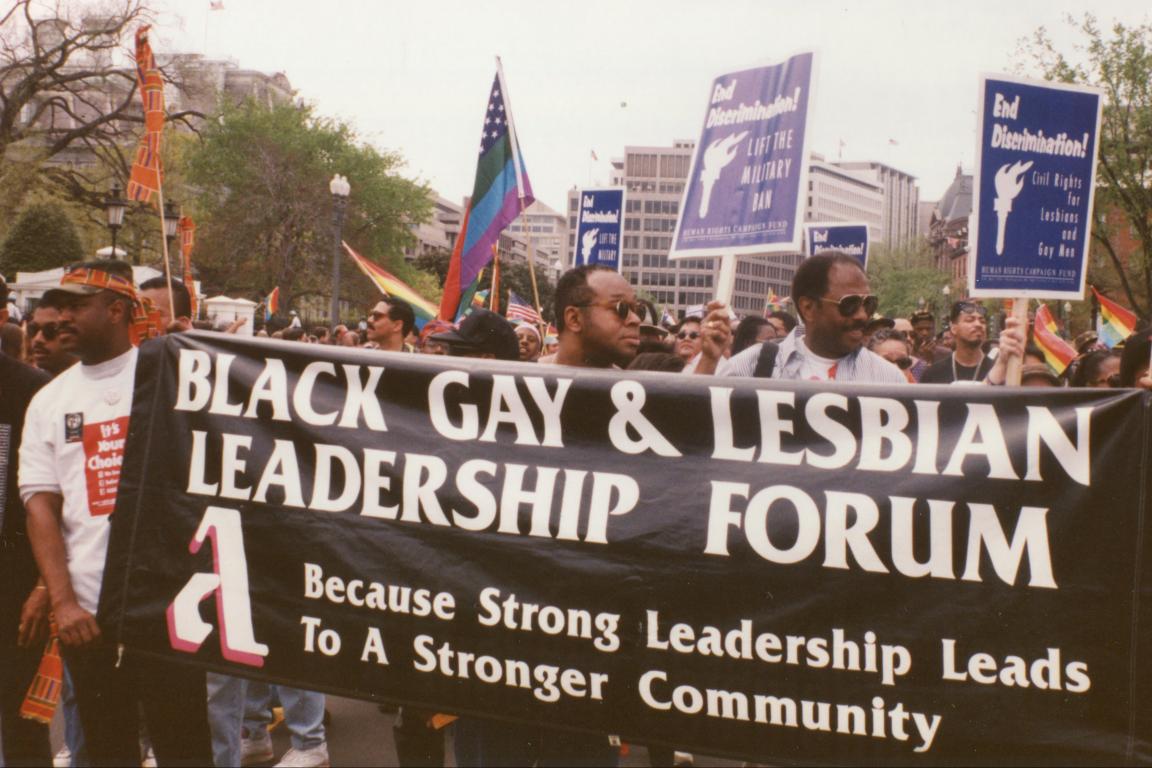
What is the most memorable moment from your Laidlaw experience?
The most memorable moment from my Laidlaw experience was reading the interview transcripts between Dr. Moore and the elders. While I was not there when they were conducted, I felt a particular connection to their words that I cannot describe. Some were dancers, teachers, community organizers, but all of them were beautiful souls. Even through the pain, they often found the small joys in life. It is admirable that they made it to the age that they have and lived through so much. There were several interviews, so I cannot say I have a favorite, but I can say that after each one, my outlook on the world changed.
What is the biggest challenge you came across, and what did you learn from it?
Time management and finding work-life balance have been an obstacle for me in many aspects of my life, but with research, in particular, it has been challenging. Some days, I want to work for 12+ hours, and others, I do not even want to think about doing work. Frequently researchers become consumed with their projects and exhaust themselves to the point where they can no longer work, begin missing deadlines, etc. Finding that balance and being a self-motivator was something I have had to learn, especially with the heaviness of the subject matter I am studying. Learning when I must work and what I must step away, without procrastinating, of course, has taken a lot of effort, but I feel more fulfilled with my work because of it.
What does it mean for you to be a Laidlaw Scholar?
Being a Laidlaw Scholar means that I am not a little fish in a big pond. I have support from some of the most brilliant people I have ever met, who encourage me to push myself and my work to the limit. While applying, I was afraid I would not find like-minded people in this world of academia because this world is so foreign. I am a first-generation college student, so I did not have anything to compare it to. Luckily for me, Laidlaw saw something in me that would allow me to open new doors to other “little fish.”
Which leaders inspire you and why?
I can never speak about my experience with research without giving the utmost credit to my advisor Dr. Mignon Moore. I have met very few people who can speak so eloquently without losing their authenticity or passion. We have a similar start to research. We both attended Columbia in our undergraduate years, and she was even in the same Named Scholars program at the university that I am currently in. It is both inspiring and exciting to see someone like me researching people like me, who are often excluded in conversations about what is going on in the world. She has served as a mentor, an advisor, and a role model to me and so many others. I hope to be half of the researcher she is one day and pay forward everything she has taught me.
Briefly describe a scene from the future you are striving to create.
I am not sure what I will be doing in terms of research in the future, but I know what I would like my impact to be: I want to make people feel seen. The subtleties of life that play prominent roles in our day-to-day interactions with one another should be further examined. When people first began learning about concepts like generational trauma, I remember feeling like they had scratched an itch I never knew I had. Something that is seemingly as obvious as your parents’ trauma possibly becoming yours was revolutionary. In my eyes, good research highlights the small parts of life that we gloss over. I want my future to be filled with exploring the overlooked aspects that shape our lives.
Quick-fire Questions
📺 Currently binging: Bar Rescue

🎵 My quarantine anthem: Industry Baby by Lil Nas X
📚 My top book recommendation: The Bluest Eye by Toni Morrison
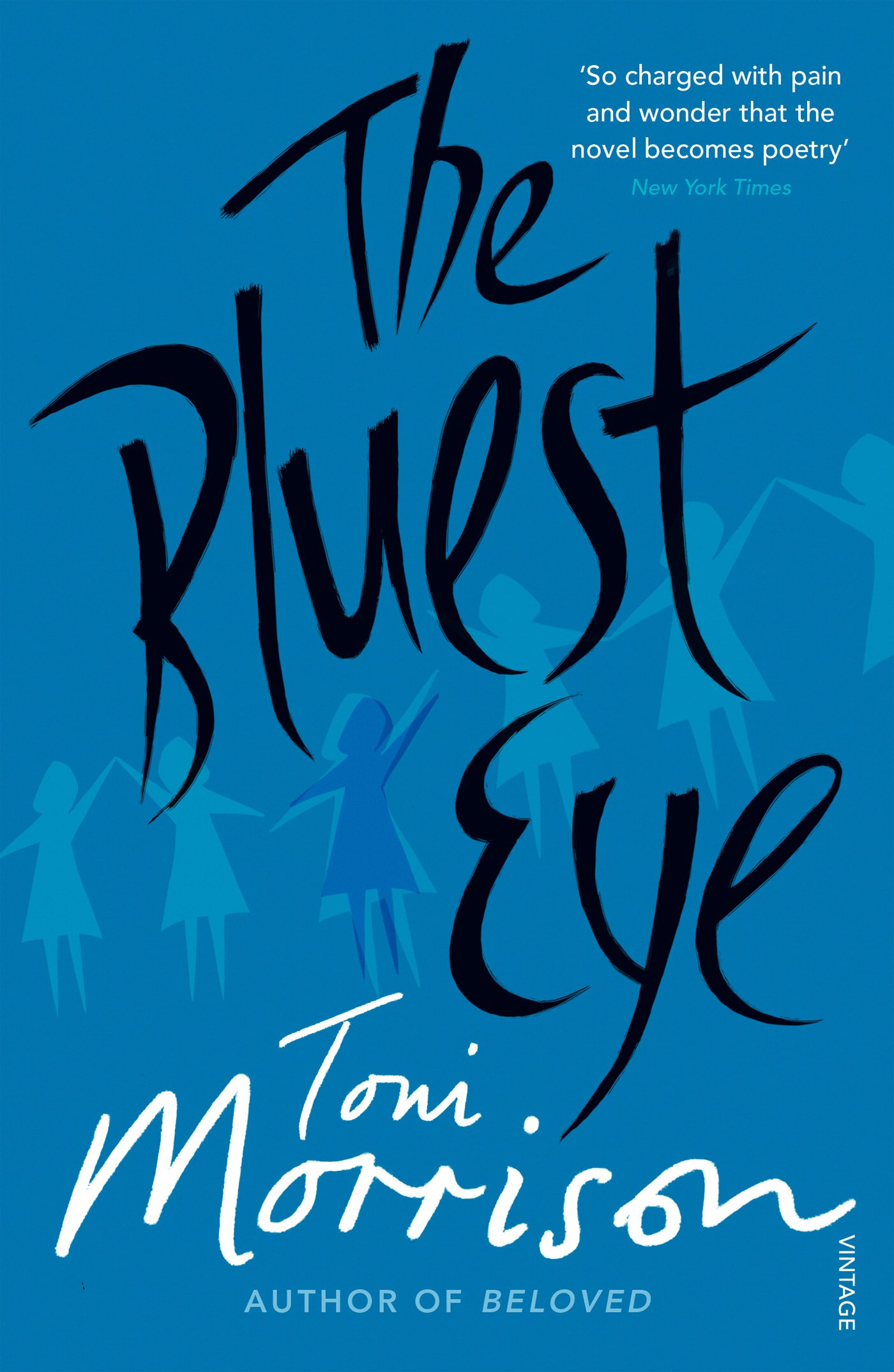
🎧 Podcast obsession: The Read with Kid Fury and Crissle
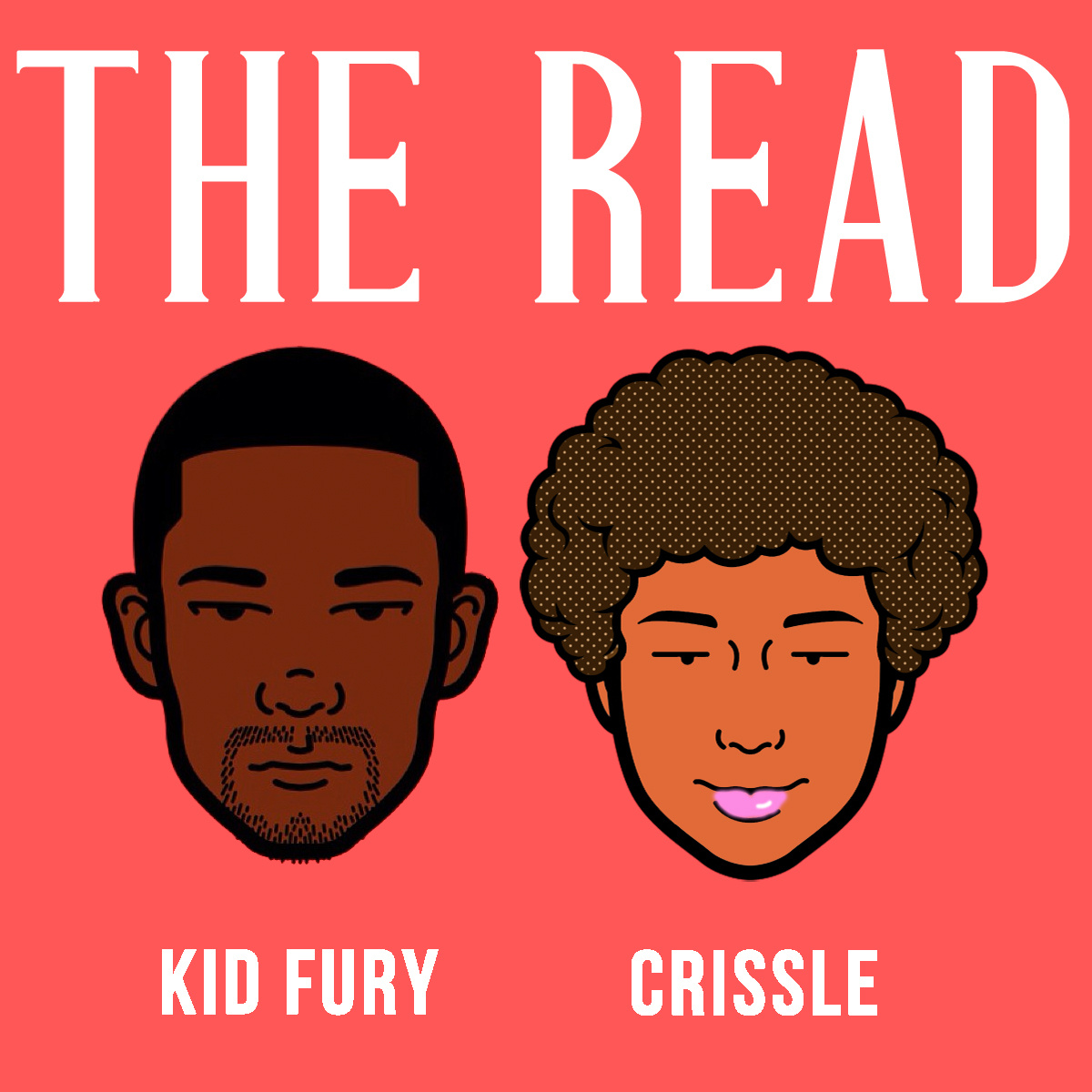
🌈 Something that made me feel joy recently: My brother recently got married, and I got to stay at the house where all four of the family dogs were.
Roberta is an Arts & Humanities Subject Co-Lead, along with University of York Laidlaw Scholar Cath Brislane. Join the Arts & Humanities community for regular networking sessions, engaging discussions, and all-around support.
🔦 Discover more Scholar Spotlights:
- Cath Brislane (University of York) on investigating rare language sounds, transparency in leadership and the glamorisation of overworking.
- Polina Foteva (University of St Andrews) on working with a recently-discovered enzyme and making scientific knowledge more accessible.
- Inkindi Mutoni Sabine (University of Rwanda) on developing a phone-detecting technology to help students focus on their studies, and leading the STEM subject community.
- Brandon Yu (University of Toronto) on his research "The effects of N-acetylglucosamine (GlcNAc) on B-cell activation" and launching his startup, iAscend.
- Jieran Sun (The University of Hong Kong) on recovering rare books and medieval manuscripts, and clearing your emotional rent.
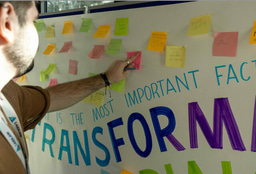
![[CLOSED] Apply to Become an Advisory Board Member](https://images.zapnito.com/cdn-cgi/image/metadata=copyright,format=auto,quality=95,width=256,height=256,fit=scale-down/https://images.zapnito.com/users/290982/posters/b494a8a5-ced0-489b-9b26-6c4da797bedf_medium.jpeg)


Please sign in
If you are a registered user on Laidlaw Scholars Network, please sign in
This is such a great spotlight guys! I always love talking to Roberta about research, uni, and life at coffee hours. It is definitely one of the highlights of my week :)